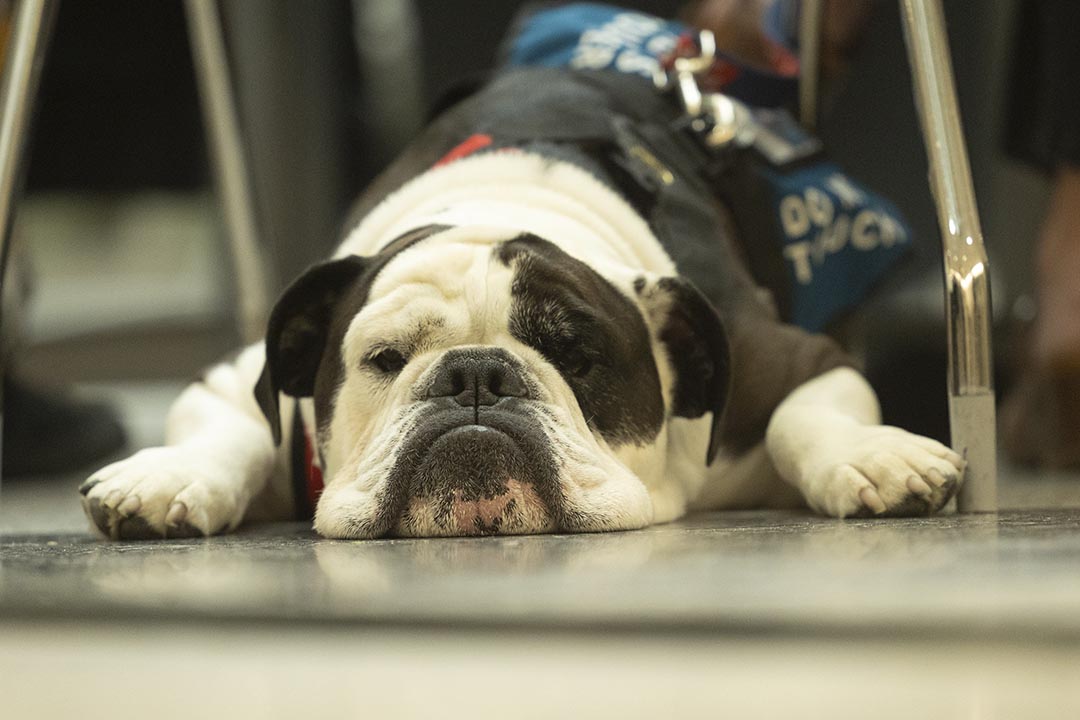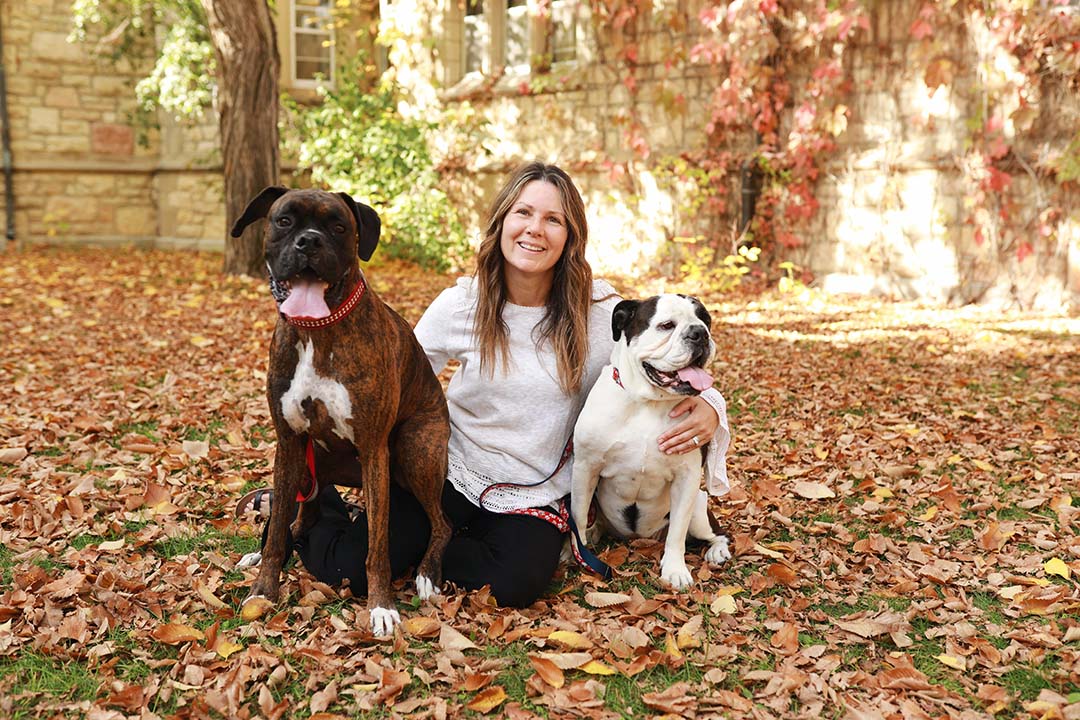
USask hosts international conference highlighting human-animal interconnectedness
SASKATOON – Animals are at the core of many peoples’ lives, and the University of Saskatchewan (USask) is hosting experts from around the world to explore the many facets of that human-animal connection.
The International Society for Anthrozoology (ISAZ) 2025 Conference will take place in Saskatoon from June 19-22. The conference, hosted by USask’s PAWSitive Connections Lab, will explore the diversity and broad applicability of anthrozoology across disciplines of research and scholarship as well as their translation into community practice.
“I am so excited for our team to be hosting this conference, bringing awareness about the ground-breaking findings of our own community research and others into one space – only good things can come of this,” said Dr. Colleen Dell (PhD), a sociology professor at USask in the College of Arts and Science, Centennial Enhancement Chair in One Health & Wellness and founder of the PAWSitive Connections Lab.
Created in 1991, ISAZ is an organization dedicated to supporting the study of human-animal interactions. This year’s conference theme is “Interconnected Worlds – Advancing Understanding in Human-Animal Relationships,” taking inspiration from connection with the natural world to promote wellness for all living things – one of the core tenets of the idea of One Health.
The upcoming conference will place an emphasis on addressing Indigenous cultural practices and worldviews, through programming and guest speakers. The disproportional impact of recent wildfires on Indigenous peoples and the relationship to animals and the land will also be discussed.
“One of the important functions that ISAZ serves is to bring these scholars together to discuss ideas, build connections, and consider research problems from a variety of perspectives. The human-animal bond is pervasive, impacting a wide variety of people and animals in a wide variety of settings. Building interconnections is key to the future of research in our field,” said ISAZ president Dr. Nancy Gee (PhD) from Virginia Commonwealth University.
Dell lauded the collaborative nature of the conference for advancing study and discussion of the human-animal bond. Guests and speakers, including students and professionals alike, will examine the human-animal bond through the lenses of psychology, anthropology, medicine, law, public policy, art, and more.

The collective school of anthrozoology – the ways in which humans and animals interact and have an effect on one another – inherently overlaps multiple disciplines. Dell herself has explored the role of animals in criminal justice, mental health, substance use health and other therapeutic medical applications. The PAWSitive Connections Lab at USask, co-led by Dell, Dr. Linzi Williamson (PhD) in Psychology and Health Studies, and Dr. Darlene Chalmers (PhD) from the University of Regina, is dedicated to exploring how people and pets benefit each other, and on improving the health and welfare of both sides of the relationship.
In addition, a USask research team spearheaded by Dell was recently awarded Stage 1 of the Social Sciences and Humanities Research Council (SSHRC) Partnership Grant for “Building a Centre for Human-Animal Connections and Collaboration,” highlighting the national importance of this kind of work.
Keynote speakers for the conference include Dr. Robert Losey (PhD) and Dr. Tasha Hubbard (PhD) from the University of Alberta and Dr. Michael Yellow Bird (PhD) from the University of Manitoba. One of the special events of the conference includes a viewing and follow-up panel discussion of the award-winning documentary “Singing Back The Buffalo,” directed and produced by Hubbard.
Alexandria Pavelich, a PhD student in USask’s Interdisciplinary Studies program and the local co-host (along with Dell) of the ISAZ conference in Saskatoon, said providing opportunities for both students and professionals in the field helps to build the world of human-animal researchers for the future.
“This conference is putting Saskatoon on the global map in terms of the incredible research innovation we have at USask, particularly in One Health, which not a lot of folks are familiar with,” Pavelich said. “We have the benefit of being in an absolutely beautiful city that has ample access to green space and opportunities to be out on the land, and a rich cultural history and knowledge that many of our international delegates have not been exposed to before. It’s a huge learning opportunity for everyone, both in theory and practice.”
-30-
For media inquiries, contact:
Victoria Dinh
USask Media Relations
victoria.dinh@usask.ca
306-966-5487

